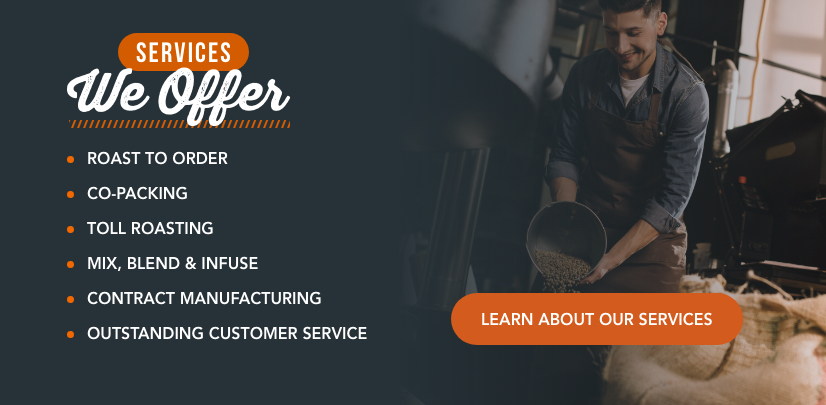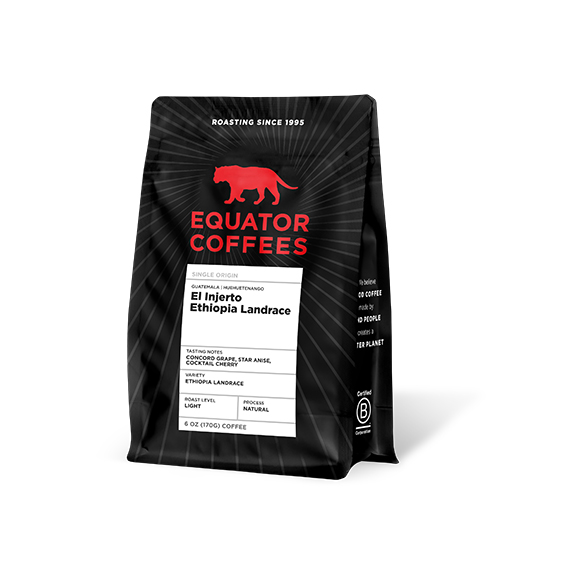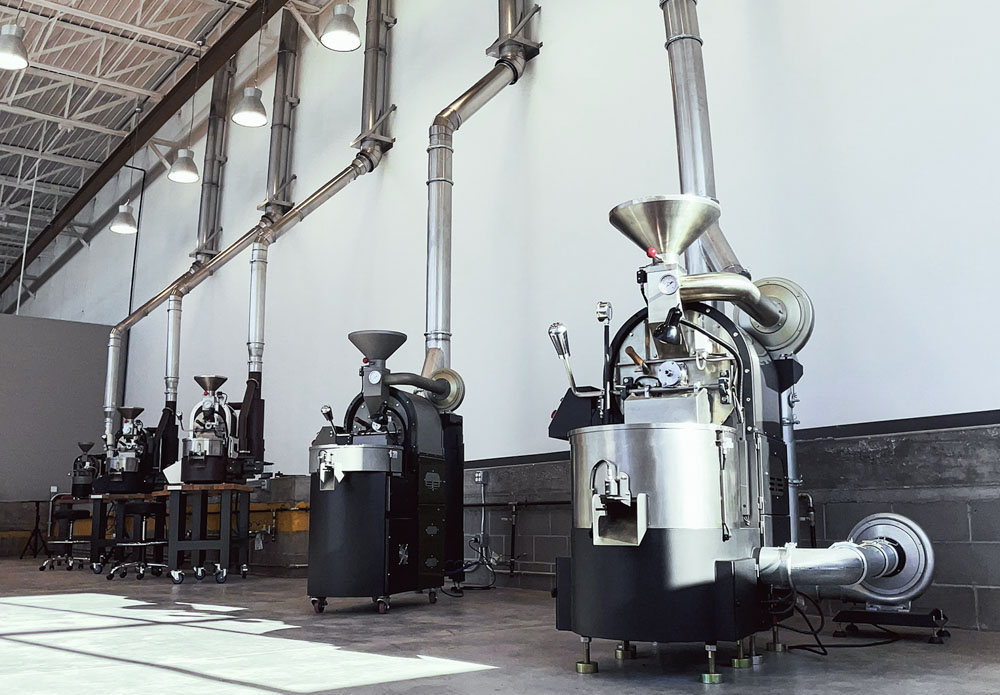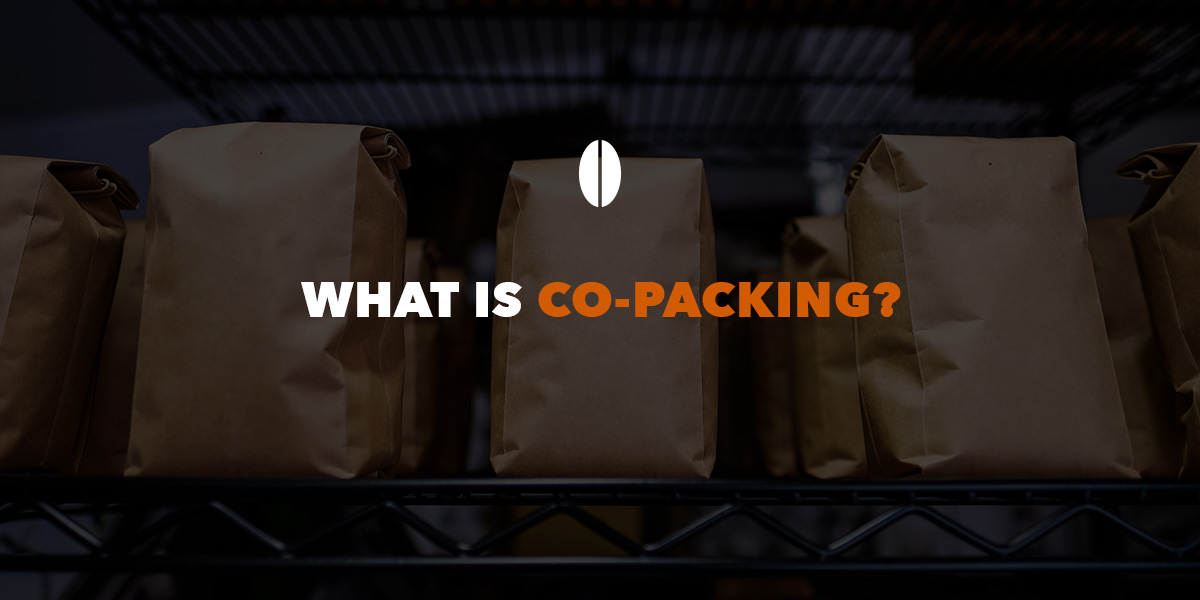
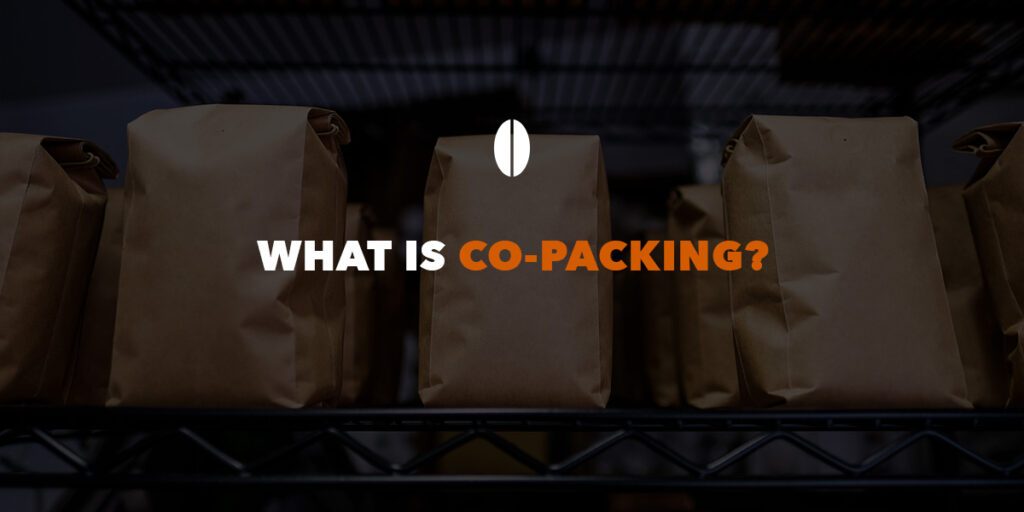
Investing in the infrastructure you need to scale production is a costly venture. Yet, to grow your private label coffee brand and get your products into your customer’s hands, you’ll need a little extra oomph to boost your production process. That’s where a co-packer comes in handy.
When you work with an experienced coffee and tea co-packer like Joe’s Garage Coffee, they become an extension of your company’s packaging operations. Their extensive contract packaging expertise helps expand your private label coffee like never before without having to take on additional staff or equipment. Read on to learn more about co-packing and why you should consider it for your brand.
How Does a Co-Packer Work?
A contract packer, or co-packer, is a company that packages and labels products for its clients. Co-packing services extend to a wide variety of products — food and beverages, powders, vitamins, clothing and shoes, beauty products, and many others.
In some cases, a co-packer may also handle services like cooking, processing, and blending ingredients before labeling and packaging. Some co-packers may offer the option of solely manufacturing the product before shipping it back to the client for packaging and labeling.
Co-packing is used in various retail, commercial, and trade industries. Depending on the scope of the packaging and the client’s customization requests, co-packing can be a simple or complex process. While the task can be as simple as adding a barcode sticker, a co-packer can also handle more detailed requests like the full producing, designing, and packaging process.
The final packaging can come in various forms depending on the product — bottles, jars, paper or plastic bags, corrugated and paperboard boxes, or metal cans, to name a few.
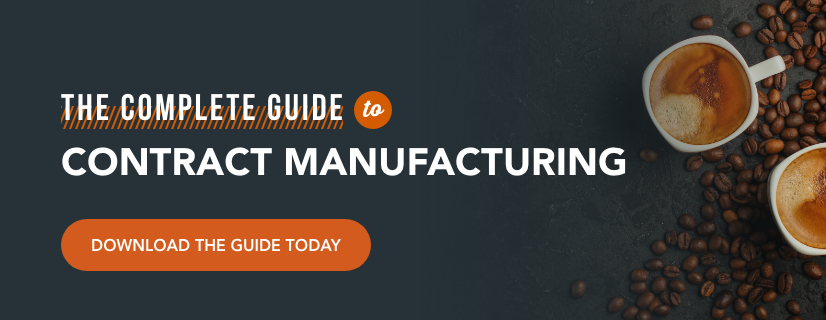
Why Use a Co-Packer?
There are various reasons why a business might hire a co-packer. If you need help developing, packaging, and labeling your products, an experienced co-packer can help guide you through this lengthy and complex process.
Here are some signs you likely need a co-packer:
- Consumers purchase your products faster than you can make them.
- Your team is constantly stressed about production.
- You want more time to focus on marketing and other business growth areas.
- You’d like to introduce a new product but don’t have the time or equipment to make it.
Co-packing has become a significant competitive advantage for many manufacturers, especially in the food and beverage markets. It enables companies to fulfill large projects without requiring extra manufacturing capacity, equipment, and staff. It’s a convenient, cost-effective method to bring products to the market without investing in an advanced manufacturing facility.
With that said, co-packing can take a significant amount of stress off the client — and with many other business-related tasks to handle, this is a considerable benefit. By outsourcing production and packaging responsibilities to a co-packer, you can focus on other areas like marketing, branding, and sales to continue growing your business.
Co-packing is especially useful in the coffee and tea industry. Many specifics are involved — determining ingredients to mix, blend, and infuse into your coffee, roasting the coffee to your desired specifications, testing the beverage for cup quality, flavor, and extraction levels, etc. Rather than attempting to handle this tedious process on your own, consider partnering with a professional co-packer with vast expertise in the coffee industry.
If you’re looking to elevate your product line for your coffee or tea business, Joe’s Garage Coffee specializes in co-packing services for brands of all sizes. We offer co-packaging services to both established brands as well as up-and-coming growth brands.
Whether you’re a local coffee shop, retail chain, e-commerce entrepreneur, or national brand, we can produce your coffee products according to your exact specifications or requirements. Our expertise in the coffee industry also means we can lend a hand if you need help developing an original private label blend.
Co-packers are the most effective way to get your product to market without having to invest in equipment or technical know-how. You can rely on our experience, personnel, and state-of-the-art production facility for all of your roasting and packaging needs.
Once you sign on to partner with a co-packer, a co-packing agreement ensures you’re protected from negligence on the part of your co-packer. It also includes a non-disclosure agreement, so you can be sure your intellectual property and unique product formulations won’t be shared with competitors.
After developing and converting your coffee blend into packaged samples, we’ll send them to you at no extra charge to gather your feedback. Based on this feedback, we’ll either create more samples until you’re satisfied with the results or proceed with the next step — locking in your approved packaging specifications.
5 Benefits of Using a Co-Packer
A co-packer will benefit your company in five major ways.
1. Reduces Overall Costs
Largescale packaging is expensive. In fact, to fully equip your facilities would probably cost you close to a million dollars. An effective co-packer has already made the investments to outfit their infrastructure with everything they need to produce your private label coffee:
- Scalable production facilities
- State-of-the-art co-packer equipment
- Qualified and experienced team
With your co-packer taking care of your production needs, you can focus on bringing more innovation to the creation of unique coffee products.

2. Introduces State-of-the-Art Equipment
Coffee contract packaging companies procure all the equipment needed to roast and package coffee beans to your exact specifications. At Joe’s Garage Coffee, our highly modernized facility can also provide commercial-grade lab services to provide third-party analysis or verification of your products. This means that whether we’re co-packing bagged coffee beans, cups for Keurig, or pods for Nespresso, your finished product will exceed your expectations.
3. Increases Scalable Capacity
Being able to scale your production capacity rapidly and keep up with your growth can be invaluable for your business. Co-packers have the facility, skilled workforce, and equipment in place to help you ramp up production when you need to.
4. Provides Faster Turns
With years of expertise in the coffee manufacturing industry, co-packers can provide you with faster turns. The earlier you involve a co-packer in the process of developing your private label coffee blend, the faster you can get set up and ready to roll, ensuring shorter lead times as you move to get your products on store shelves. Even with a nationwide distribution network, Joe’s Garage Coffee can get your product ready to go as quickly as possible.
5. Brings Certifications to the Table
Your coffee co-packer should have already taken steps to certify their facility, so you can take advantage of all certifications you need without having to invest the time and money in dealing with audits yourself. Our facility is registered and approved by the FDA, and we’ve earned many third-party certifications to ensure your products meet the highest quality standards and appeal to a variety of markets.
Our facility certifications include:
- Kosher Check: While observant Jewish people typically purchase kosher products for religious reasons, this isn’t the only group to consider. Many other consumers opt for kosher food and beverages due to assurance that the product was developed cleanly, purely, safely, and with high standards in mind. More people are becoming cautious about the foods they consume, making Kosher Check a helpful certification to have. When your product is kosher certified, you can sell your coffee to kosher-observing members of the Jewish community and additional health-conscious clientele.
- USDA Organic: With USDA Organic certification, processing facilities can market their products as organic. All of Joe’s Garage Coffee’s organically labeled items contain contain certified organic ingredients. Everything we use to manufacture these products — storage facilities, cleaning materials, and handling equipment — adheres to USDA guidelines regarding how the food is grown, processed, stored, packaged, and shipped to customers.
- Fair Trade: Joe’s Garage Coffee’s products can also be Fair Trade certified, meaning all of the workers and farmers that grew the product receive a fair deal on their goods. Additionally, the farms follow the set environmental standards and prioritize workers’ rights. Fair Trade certification is important as it helps companies source products that are both sustainably and ethically produced — all while assuring consumers that the workers behind these products get a fair deal for all of their hard work. When workers and farmers are treated fairly, everyone benefits.
What to Look For in a Co-Packer

There are several things to consider when seeking out a co-packer to help grow your brand. You’ll want to find a packing company that specializes in your specific product, offers incredible quality services, produces efficient results, and more. Before partnering with a co-packer for your coffee or tea brand, look for the qualities below to ensure you’re making the right decision for your business.
1. Product and Market Knowledge
It’s important to partner with a co-packer that has extensive knowledge, skill, and experience regarding your specific product or industry. At Joe’s Garage Coffee, we have more than 20 years of coffee roasting experience and industry knowledge. Our licensed professionals and certified industry can help get your product to the shelf in just a few weeks.
No matter the type of product packaging you’re looking for — Keurig compatible cups, Nespresso pods, cold brew pitcher packs, or one-cup filter pods — you can rest assured we have the drive and skills needed to help you create a quality custom product from scratch.
2. Cost-Effectiveness
New coffee brands may prioritize finding the least expensive manufacturing and packaging services. However, cheap coffee comes at the cost of quality. Suppliers that provide discounted prices typically have to cut corners in production, which can result in a low-quality product. Cheaply-produced products are less likely to thrive in a competitive market where consumers can find similar products of higher quality elsewhere.
While not all high-quality products have to be expensive, spending a little more on your coffee or tea products can generate an excellent return on your investment. By partnering with the right co-packer, you’ll achieve a balance of quality and price to get the best bang for your buck.
With Joe’s Garage Coffee, you can experience terrific profit margins while offering fairly priced products to your customers. Investing in premium products like organic and sustainably sourced coffee may also boost your sales — customers are often willing to pay a higher price for in-demand products such as these.
3. Exceptional Customer Service
At Joe’s Garage Coffee, we pride ourselves on outstanding customer service and prompt response times. We believe strong communication with our clients is key to producing great products for their customers. You can count on us for top-notch service and assistance throughout the entire process, and we’ll always be here to answer any questions you might have along the way.
4. High Quality
Consider partnering with Joe’s Garage Coffee for superior quality products to attract customers time and again. We have the tools, knowledge, and resources necessary to achieve prime quality and consistency for your private coffee or tea label. When you choose to partner with us, we’ll work diligently to ensure your products outshine your competition.
5. Scalable Capacity
As mentioned earlier, high scalable capacity is an important benefit you can experience when partnering with a skilled coffee co-packer. While you may need to start out small, you won’t stay here for long. We provide scalable capacity to meet your individual needs.
At Joe’s Garage Coffee, we believe in low minimums and high capacity — low minimums to help get you started and high volume capacity to take your brand where you want it to go.
While low minimums are effective for companies entering a new market or starting a brand, we also specialize in high volume output for larger national brands. No matter the size of your business, we’ll tailor our program to fit its unique needs. We handle each job with the quality and world-class consistency needed to help our clients succeed.
Our team is incredibly process-driven, and we aim to pave the way to your brand’s success. As your brand thrives and expands, we’ll assist the process each step of the way, giving you the tools and resources needed to help you succeed. Consider partnering with us to see an increase in scalable capacity.
6. Fast Results
Finally, it’s important to partner with a supplier that produces quick turnaround times. At Joe’s Garage Coffee, we’ll customize our program to fit your needs without taking large amounts of time to turn your orders. We generate shorter lead times than our competition, and you’ll have an excellent product ready to hit the shelves in just weeks.
When Is It Time for a New Co-Packer?
The partnership between your company and your co-packer is one established on trust, communication, and confidence in their ability to perform the services they’ve committed to fulfilling. The coffee industry is booming, and your co-packer is your key to setting your corporation’s private label coffee brand apart from your competitors. They ensure production is running smoothly, so your coffee products get onto shelves and into your customer’s hands.
If your co-packer is not pulling their weight and your brand is suffering yet their co-packer fees remain the same, it may be time to consider partnering with someone new. Here are four signs it may be time for your business to find a new co-packer.
1. Communication Breakdown
Open lines of communication are the key to ensuring you and your co-packer are on the same page. If you’re finding that your co-packing partner is slow to respond or doesn’t show initiative when it comes to touching base, then your production schedule will start to lag.
Working with a co-packer requires proper communication at every stage, from developing your coffee products to coordinating the production process, and even working out the different aspects involved in packaging. You will need to continually touch base with one another to ensure your private label coffee correctly represents your brand.
If you find your co-pack is lacking in the customer service department, then it may be time to trade up.
2. Limited Scale
One of the main reasons you partner with a co-packer is to make it easier to expand your brand’s reach, boosting your overall sales. Your co-packer needs to have the capacity to grow with you, including:
- Facilities large enough to handle your needs and encourage future expansion
- Expert personnel to lend expertise to your growing brand
- Ability to scale production up or down depending on fluctuating demand
- Low minimums to allow for the introduction of creative, new products
- Flexible abilities that make creating innovative products possible
3. Lagging Lead Times
At the beginning of your partnership, chances are, your co-packer filled all your orders in a timely and efficient manner. However, many co-packing partners grow complacent as time goes on. If your lead times are lengthening, then you won’t be able to meet the demands of your customers. Whether it’s the beginning of your business relationship or you’ve been working together for years, your co-packer should be able to provide timely turn speeds.
4. Lacking Equipment, Personnel, and Certifications You Need
The basis of your relationship with your co-packer is that they provide the roasting and packaging equipment plus the trained personnel, so you don’t have to invest in these essentials. However, after a while, you may find that your co-packing partner’s equipment is subpar or that their staff doesn’t possess the expertise you initially thought they had.
If your co-packer lacks these basic qualifications, it’s time to partner with those who can provide you with cutting-edge equipment and the know-how to produce superior coffee products. Plus, to expand into a variety of markets, your co-packer should possess necessary certifications, such as USDA Organic, Kosher and Fair Trade, to mention a few.
Co-Packing FAQ
Before partnering with a co-packer for your coffee or tea brand, browse our answers to some frequently asked questions below.
1. Co-Packing vs. Private Label — What’s the Difference?
Like a co-packer, a private label manufacturer will work with you to develop and package a product. However, the key difference between these two lies in ownership. A private label brand creates products for third parties to sell to their own consumers — they don’t brand, market, or sell any of their own products.
While a co-packer will distribute your product under your brand’s name, a private label distributes their product under your name. This means the private label legally owns the product and can do with it as they please. Generally speaking, a private label is an attractive option for a company that wishes to create a new product but needs a little more help.
2. Co-Packing vs. Co-Manufacturing — What’s the Difference?
While co-packing refers to packaging and labeling a brand’s goods, co-manufacturing assists product development and production. Depending on the client, the co-manufacturing process may involve recipe development to create foods and beverages, manufacturing clothing and shoes, or casting and molding equipment.
As mentioned earlier, some companies — like Joe’s Garage Coffee — handle both the manufacturing and packaging of client products.

3. What Is a Co-Packing Agreement?
Because a co-packer is a third-party manufacturer that agrees to produce a product for another brand, this typically involves a formal agreement between the co-packer and the client. While there should be a solid relationship and mutual trust between the two parties, it’s still a good idea to have a written agreement in place.
The co-packing agreement should establish terms, requirements, and obligations for both parties. It’s not necessary for this agreement to be overly detailed and rigid, but it should generally address the following areas and others:
- Co-packing services: There should be a clear description of the services the co-packer will perform. This includes who will order ingredients, packing material, labels, and shipping boxes. The scope of the work should be defined as precisely as possible — in some cases, it may also make sense to specify what services won’t be included.
- Product specifications: A co-packing agreement should outline clear specifications of the products that will be involved. This includes information regarding the product’s design, instructions for packaging and labeling, a full list of bill materials, and case configuration. For easier readability, this information can be listed in technical spec sheets.
- Food safety: Manufacturing any type of food or beverage is a crucial responsibility, so the marketer must oversee food safety practices of their manufacturers. The co-packing agreement should allow the marketer access to the facility during production, as well as the right to inspect any food safety documentation relevant to their product.
- Liability: Typically, the client requests that they won’t be held responsible for any liabilities due to the co-packer’s actions. An indemnification provision states that the co-packer will compensate the client for any damage, loss, or cost suffered due to their negligence. This includes damaging or losing products during packaging or storage. The client may also request that the co-packer add them to their liability insurance policy.
- Quality assurance: The agreement should establish who is responsible for quality control and how often they should inspect products. It should also specify what factors render a product defective and who will handle the disposal or repair of those products.
4. How Do You Find a Co-Packer?
Once you’ve decided to partner with a co-packer to grow your brand, it’s time to start searching for the right one. There are many ways to find a co-packer, such as reaching out to friends in the food business or scouring the internet. However, if you need a co-packer specializing in private coffee and tea labels, look no further than Joe’s Garage Coffee.
When you trust us to manufacture and co-pack your coffee or tea, you’ll have several options to compete in the latest coffee trends, and we’ll fully prepare your coffee to produce delicious flavors and consistent results.
Our state-of-the-art co-packing facility paired with a variety of house flavors — like pumpkin spice, salted caramel, chocolate creme brûlée, and more — is bound to bring customers back cup after cup. Consider us as your private coffee label partner to start seeing a valuable change in your brand.
View Our Co-Packing Services
If you’re ready to see your private label coffee brand thrive and grow, be sure to choose Joe’s Garage Coffee as your co-packing partner. With over 20 years of experience in the coffee industry, we have the facility, equipment, and people to meet all of your needs, whether it’s toll-roasting, roast-to-order, or co-packaging.
Our goal is to provide superior quality to take your brand to the next level. Check out our co-packing services or contact our private label experts today to find out more.
